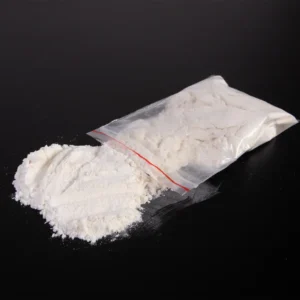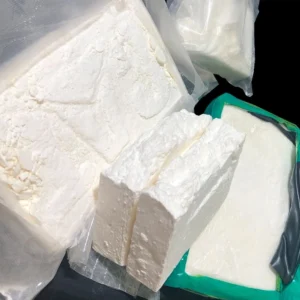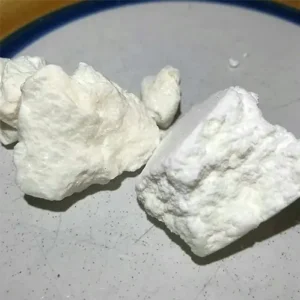
Our Values
How Can I Ensure I’m Buying Safe Painkillers Online?

TRUSTED DELIVERY SERVICES





-
Buy Cocaine Powder Online
Price range: $110.00 through $1,000.00 -
Buy 2C-B Pink Cocaine Powder
Price range: $115.00 through $1,200.00 -
Buy Peruvian Pink Cocaine Online
Price range: $105.00 through $1,050.00 -
Buy Flake Cocaine Online
Price range: $100.00 through $1,000.00 -
Buy Peruvian Cocaine Online
Price range: $100.00 through $900.00 -
Buy White Doc Cocaine Online
Price range: $105.00 through $1,100.00
Understanding OTC Drug Stores: A Basis of Healthcare Access
Over-the-counter (OTC) drug stores play a significant role in providing accessible healthcare solutions to the general public. These stores are an essential resource for individuals seeking a wide variety of medications and health products without the need for a prescription.
Whether it’s for a common cold, allergy relief, or pain management, OTC drug stores make it easier for people to manage their health and well-being.
This article explores OTC drug stores, the products they offer, the role they play in healthcare, and how they serve the public conveniently and cost-effectively.
What Are OTC Drug Stores?
OTC drug stores are retail establishments where consumers can purchase medications, health products, and personal care items without a prescription from a healthcare provider. The term “over-the-counter” refers to drugs that are available for sale without the need for a prescription, making them easily accessible to the public. OTC medications are typically considered safe for self-medication when used according to the label and are regulated by the Food and Drug Administration (FDA).
OTC drug stores carry a broad range of products, including medications for common ailments, health supplements, and personal care products. The stores may also offer additional services like health consultations, screenings, and vaccinations, further enhancing their role in promoting public health.
Types of Products Found in OTC Drug Stores
OTC drug stores are stocked with a wide variety of products designed to address common health concerns. Below are some of the most common categories of products you’ll find:
1. IzChem Offers Pain Relief and Anti-inflammatory Medications
Pain relievers are among the most frequently purchased items at OTC drug stores. These medications are commonly used to treat headaches, muscle aches, minor injuries, and arthritis. We offer solid, discreet options to buy cocaine online via Bitcoin, and find an easy means to buy crypto online.
. Popular pain relief medications available OTC include:
- Acetaminophen (e.g., Tylenol)
- Ibuprofen (e.g., Advil, Motrin)
- Aspirin
These medications are typically used to relieve mild to moderate pain and reduce inflammation, but it is essential to follow the recommended dosage and consult with a healthcare provider if symptoms persist.
2. Cold, Cough, and Allergy Medications
OTC drug stores carry a wide range of medications to treat symptoms of the common cold, flu, and allergies. These include:
- Decongestants (e.g., Sudafed)
- Antihistamines (e.g., Benadryl, Zyrtec)
- Cough syrups (e.g., Robitussin)
- Throat lozenges (e.g., Ricola)
These medications provide relief from nasal congestion, sneezing, coughing, and other symptoms of upper respiratory infections or allergic reactions.
3. Digestive Health Products
These medications can provide quick relief from minor digestive problems and are often the first line of defence before consulting a healthcare provider.
- Antacids (e.g., Tums, Rolaids)
- Probiotics (e.g., Align, Culturelle)
- Laxatives (e.g., Dulcolax, MiraLAX)
For digestive issues like heartburn, acid reflux, indigestion, or constipation, OTC drug stores offer a variety of treatments such as:
4. Skin Care and Topical Treatments
OTC drug stores also offer a range of products for skincare and topical treatments, such as:
- Sunscreens (e.g., Neutrogena, Coppertone)
- Acne treatments (e.g., Clearasil, Oxy)
- Topical antifungal creams (e.g., Lotrimin, Lamisil)
- Hydrocortisone creams for rashes and skin irritation
These products are available to address various skin conditions and can be used for self-care or as adjuncts to prescribed treatments.
5. Vitamins and Dietary Supplements
OTC drug stores provide a variety of vitamins, minerals, and dietary supplements designed to support general health or target specific health concerns, such as:
- Multivitamins
- Vitamin D
- Fish oil supplements
- Probiotics
While these supplements are not intended to replace a balanced diet, they can help supplement nutritional needs and support overall health.
6. First-Aid and Injury Care
Basic first-aid supplies are essential in every home. Research Chemicals Purchase. OTC drug stores typically carry:
- Bandages (e.g., Band-Aid)
- Antiseptics (e.g., Neosporin)
- Gauze pads and tapes
- Burn creams and cold packs.
These items are used for treating minor injuries, cuts, scrapes, and burns, allowing individuals to handle minor medical situations at home before seeking professional care if needed.
7. Sleep Aids and Relaxation Products
For people experiencing difficulty sleeping, OTC drug stores offer products like:
- Melatonin supplements
- Diphenhydramine-based sleep aids (e.g., Unisom, Sominex)
- Herbal teas (e.g., chamomile tea)
These products are commonly used to promote better sleep or alleviate temporary sleeplessness.
The Role of izChem on OTC Drug Stores in Healthcare
OTC drug stores have become a vital part of the healthcare landscape for several reasons:
1. Convenience and Accessibility
One of the main advantages of OTC drug stores is their accessibility. These stores are often located in local communities and may offer extended hours of operation, including 24-hour locations. This makes it easy for consumers to access essential medications and healthcare products whenever they need them. For many people, an OTC drug store may be the first place they go to address minor health concerns.
2. Empowering Self-Care
OTC drug stores empower individuals to take control of their health by providing the tools and resources needed to manage minor ailments. Whether it’s for managing pain, treating allergies, or caring for a wound, these stores allow people to address common health issues independently. This can help alleviate the burden on healthcare providers by reducing unnecessary visits for minor conditions.
3. Cost-Effectiveness
OTC medications are often more affordable than prescription drugs, making them an attractive option for individuals who need relief but may not have access to insurance or who wish to avoid the cost of doctor visits. In addition, many OTC drugs are available in generic forms, which are typically more cost-effective while providing the same therapeutic benefits.
4. Health Education and Guidance
Pharmacists at OTC drug stores often provide valuable guidance and education to customers regarding proper medication use. Whether it’s explaining dosage instructions or helping customers choose the right product for their symptoms, pharmacists play an essential role in promoting safe self-medication practices. Many drug stores also provide information on how to prevent certain health issues and maintain a healthy lifestyle.
5. Supporting Preventive Care
OTC drug stores often provide products that support preventive care, such as vaccinations, vitamins, and health screenings. These services help individuals stay proactive about their health and prevent illnesses before they become more serious. Additionally, preventive care products like sunscreens and dietary supplements help reduce the risk of long-term health conditions.
Challenges Faced by OTC Drug Stores
While OTC drug stores provide numerous benefits, they also face challenges:
1. Misuse of OTC Medications
OTC medications are generally considered safe when used as directed, but misuse or overuse of these products can lead to serious health problems. For example, taking too much pain medication or using products that interact with other medications can cause harm. OTC drug stores must educate customers on safe medication practices to mitigate this risk.
2. Expanding Product Range
The range of available OTC products is growing, making it harder for consumers to choose the right product for their needs. While variety is beneficial, it can also create confusion, especially for first-time users or people who may not have a deep understanding of how certain medications work. Drug stores must ensure that customers receive the proper guidance to make informed choices.
3. Regulatory Compliance
OTC drug stores must comply with regulations set by the FDA and other governing bodies. Ensuring that all products on the shelves are safe, properly labelled, and approved for sale is an ongoing challenge for drug stores. Changes in regulations or new safety concerns can result in recalls or shifts in product availability.
Conclusion
OTC drug stores are indispensable to everyday healthcare in the United States, providing individuals with access to medications and products that help manage a variety of health concerns. Whether it’s treating a cold, managing chronic pain, or caring for a wound, OTC drug stores make self-care more accessible, affordable, and convenient.
In addition to medications, OTC drug stores also offer health services and educational resources, empowering consumers to make informed decisions about their health. As healthcare needs continue to evolve, OTC drug stores will remain a cornerstone of health access, helping people stay healthy and manage their well-being on their terms.








